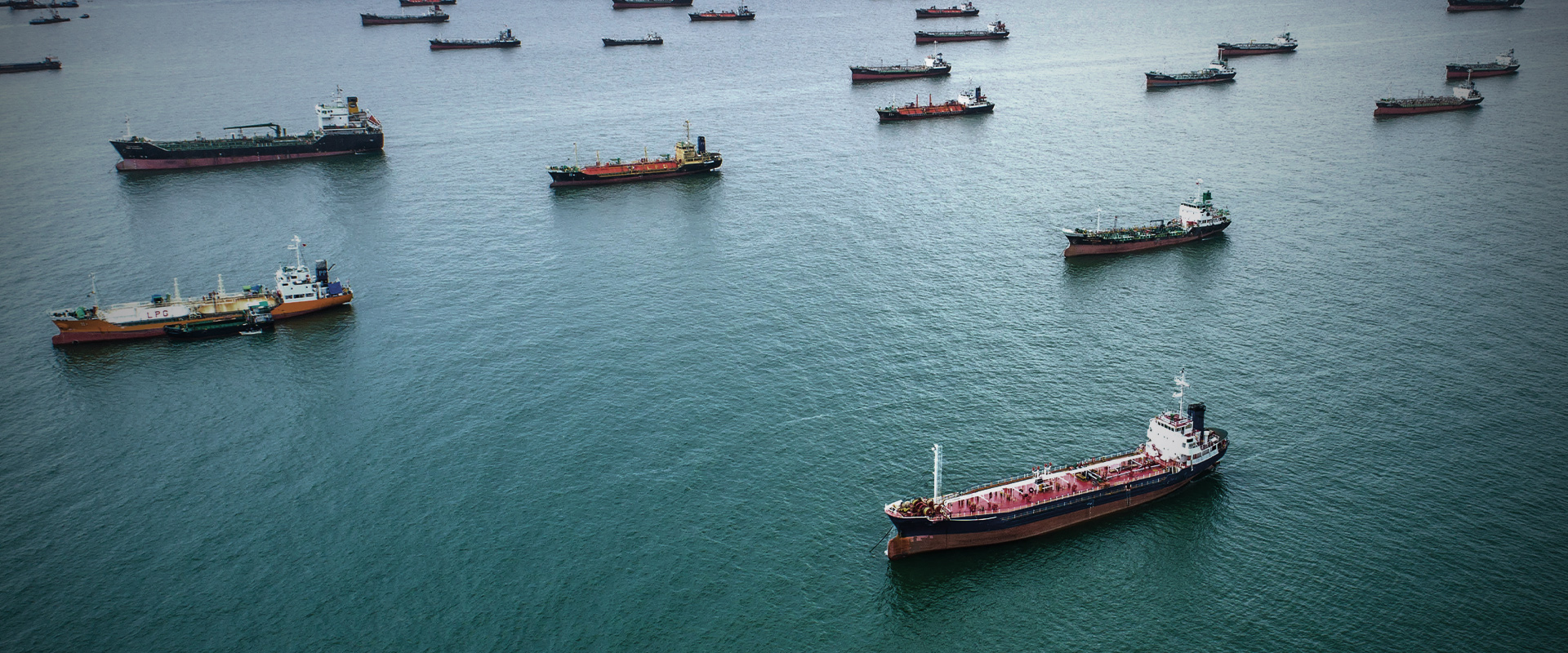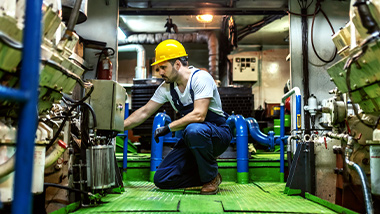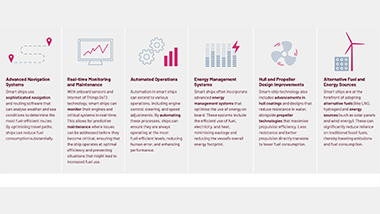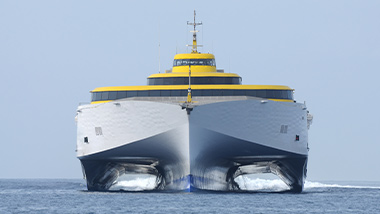Smart ship technology plays an important role in decarbonising the shipping industry as it keeps ships up to date with increasing demands.
The shipping industry is currently in the midst of a green transition, which involves new regulations that aim to decarbonise. But keeping a fleet in line with these and future regulations does not have to mean replacing ships entirely.
Shipowners have options to retrofit their fleet and make their ships ‘smart’. Retrofitting is defined as the installation of state-of-the-art or innovative components or systems (TRIMIS). This means modifying equipment to bring the ship in line with the latest regulations and standards to extend a ship’s longevity. For instance, this could be retrofitting of the ship’s engines so the ship can sail on alternative fuels or the integration of systems or technologies to reduce fuel consumption.
Read more about ship optimisation in the below articles.





